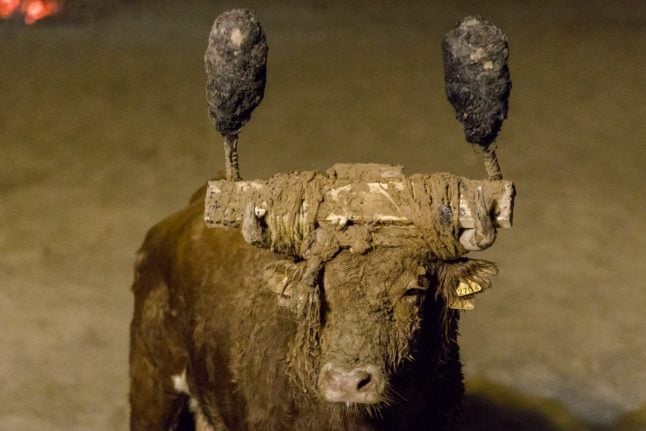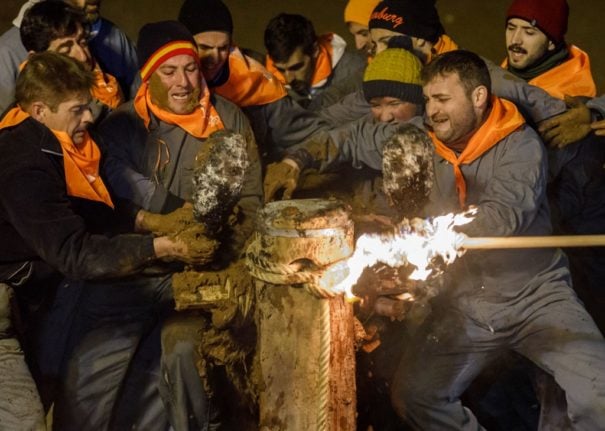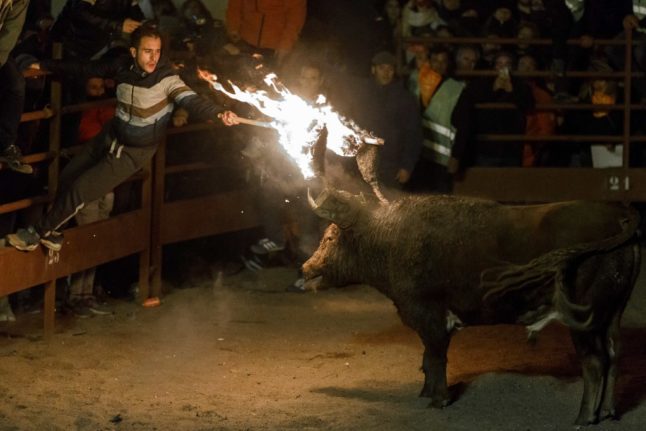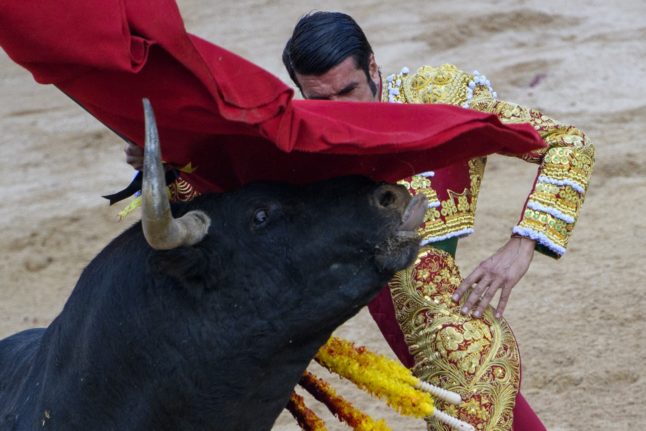Animal rights campaigners have called for a ban on a centuries-old festival in the medieval town of Medinaceli, calling it animal abuse.
The ironically named Toro de Júbilo – “Bull of Joy” – is an event which typically takes place on the second weekend in November.
Spanish anti-animal cruelty party PACMA has said it is mulling legal action against organisers of the event.
“This grotesque tradition continues to be celebrated even though we are no longer in the Stone Age,” it tweeted.
You can watch footage of the event in the YouTube video below. It is age-restricted given the graphic nature of the event.
Just before midnight on Saturday, a group of mostly men dressed in matching grey uniforms drag the bull into a makeshift bullring set up in the main square of the Castilla y León town.
They then tie the bull to a wooden post and attach balls of highly flammable tar to its horns as hundreds of people watch behind barriers.
They cake mud to the animal’s back and face in an effort to protect it from the flames, before setting the tar balls alight.
Participants then release the bull into the square, covered in sand for the occasion, to cheers and applause from the crowd.

The bull frantically shakes its head to try to rid itself of the burning balls of tar as it races around the square.
Revellers then jump into the ring and attempt to dodge the bull in a purported test of courage. Some dangle a cape in front of it.
This continues for about 20 minutes until the flammable balls on its horns go out and the bull collapses. It is then dragged out of the ring.
‘Simply animal abuse’
The bull’s life is traditionally spared at the end of the event.
But in the 2022 edition the animal died after another young, castrated bull – which organisers sent into the bullring to guide him out of the arena – rammed him in the head, the festival said.
Jaime Posada, of the Spanish branch of animal rights group Anima Naturalis, which is also calling for a ban, said the bull is kept in a tight pen for hours before it is dragged into the square.
“It can’t move, it can hardly sit down, so it is stressed simply from that,” he told AFP.

Participants declined to be interviewed, and PACMA and other opponents of the fiesta said locals prevented them from filming the ritual.
“Why are they afraid? Basically because they know that this is not culture, it’s simply animal abuse and they enjoy doing it,” Posada said.
The festival, however, is one of the main events for Medinaceli, which is home to around 650 people.
The regional government of Castilla y León has even given the festival a special cultural status.
The Medinaceli town hall did not respond to a request to comment.
There is growing opposition among Spaniards to the hundreds of bull festivals which take place in Spain, but in rural communities in particular, many people still support these old traditions involving varying degrees of torture and distress for the bulls, and in many cases death.
Another controversial bull festival is El Toro de la Vega in Tordesillas near Valladolid, which sees one bull hunted to the death through the town’s streets by lancers on horseback and some on foot.
READ ALSO:



 Please whitelist us to continue reading.
Please whitelist us to continue reading.
Member comments